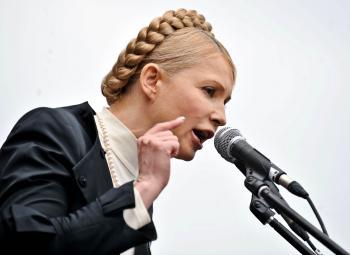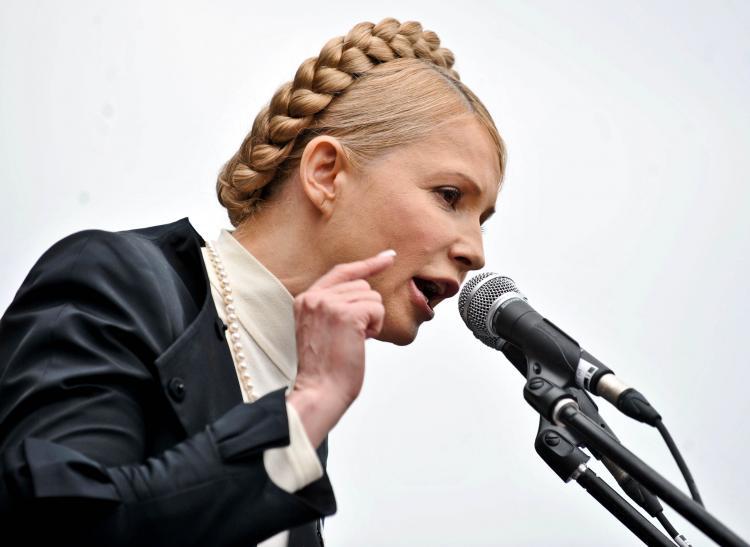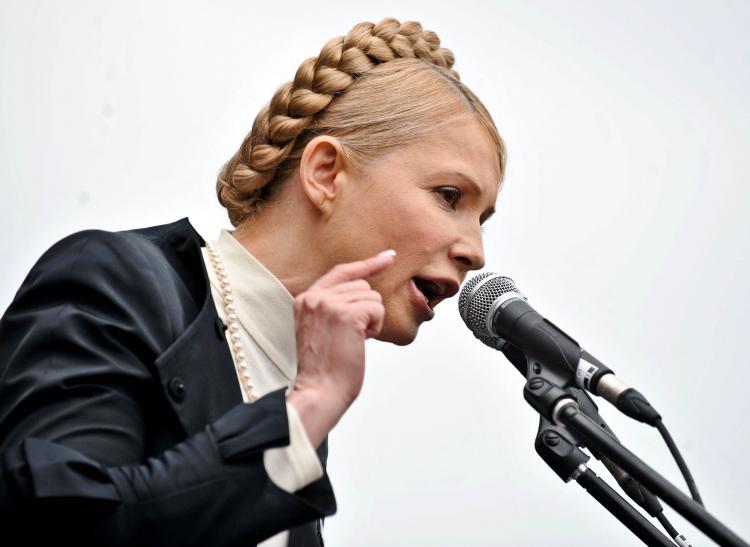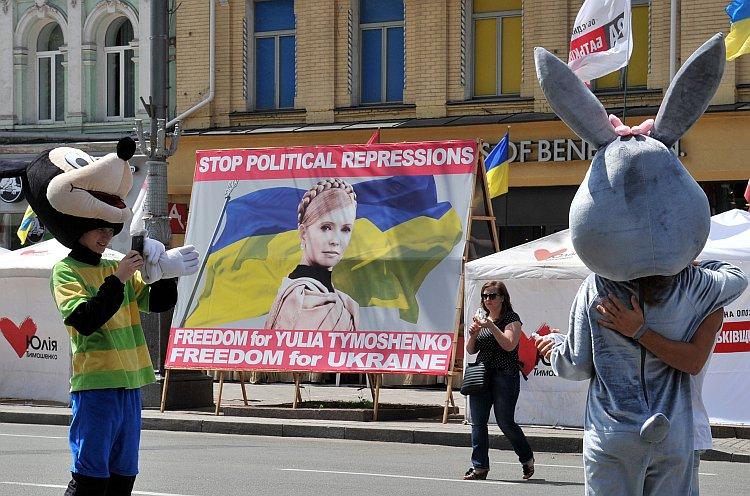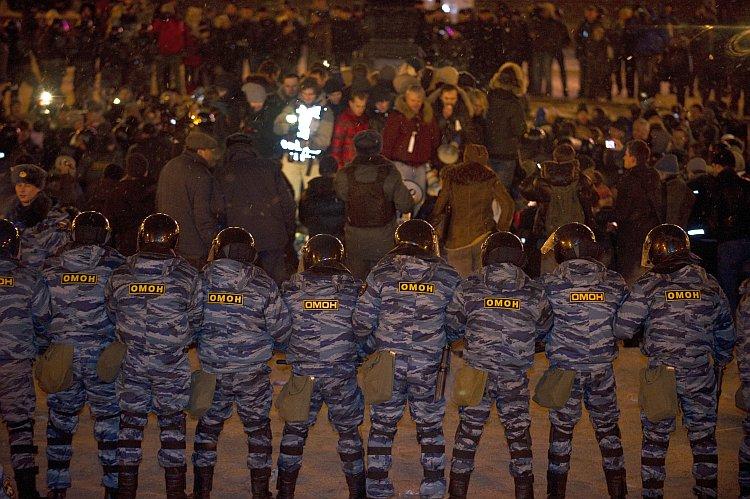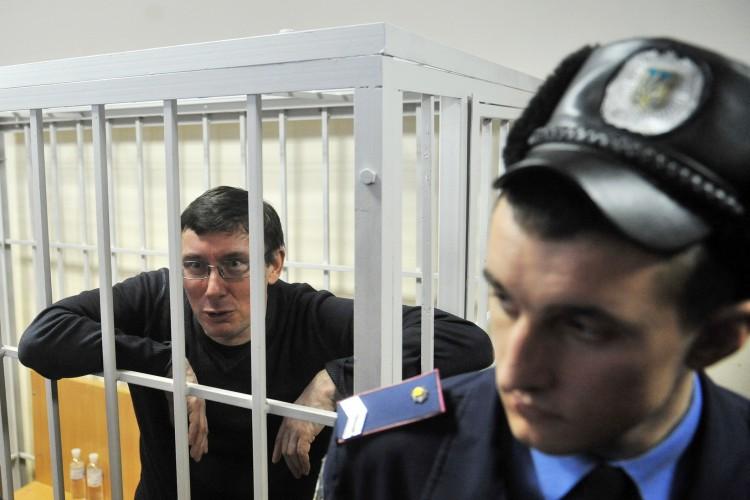The breathing room for Ukraine’s opposition has been getting rather stuffy of late. In recent months, Ukrainian authorities, led by President Viktor Yanukovych, have launched a wave of arrests and investigations aimed at former Prime Minister Yulia Tymoshenko’s allies, in what many consider to be a concerted strike against the country’s opposition.
The pressure comes on the heels of the Stockholm Arbitration Court’s ruling in June regarding the controversial gas dispute that crippled Ukraine’s economy and stirred the government to find those responsible.
The court concluded that under Tymoshenko’s rule, state gas company Naftogaz illegally took 388 billion cubic feet gas from RosUkrEnergo and now needs to return the gas.
RosUkrEnergo is jointly owned by Ukrainian Dmitry Firtash—an ally of Russian-leaning Ukrainian President Viktor Yanukovych—and Russian state gas giant Gasprom. The company transports gas from Russia and Asia to Ukraine and other Eastern and Central European nations.
The national security service in July arrested several former high-level officials from the customs office, including Anatoliy Makarenko, who had served as customs chief. They also arrested former First Deputy CEO Naftogaz Igor Didenko.
Arrests of other former officials from Tymoshenko’s government followed in August. Her Defense Minister Valeriy Ivaschenko was detained and accused of costing the state 17 million ghrivna (about US$2 million) through the illegal privatization of a state-owned machinery factory in the Crimea.
Meanwhile, former Economy Minister Bogdan Danilishin is on Interpol’s wanted list. He is accused of , among other things, illegally buying fuel for the army, allegedly costing the state $2 million in losses.
Local media has reported that Danilishin has fled to Germany, but German authorities have not confirmed the reports.
On Thursday, Danilishin denied the accusations against him in a phone interview with Ukraine’s English language newspaper Kyiv Post. He told the paper he has been undergoing medical treatment since June, but declined to reveal his whereabouts.
Information is also circulating that the general prosecutor’s office is preparing to arrest Tymoshenko’s number two, former First Deputy Prime Minister Alexander Turchinov.
Ukrainian newspaper Delo reported on Wednesday that an unnamed source said the prosecutor’s office had already initiated a case against Turchinov for allegedly selling gas from the state gas reserves at cut-rate prices to certain private companies.
Turchinov has denied the allegations saying the decision to sell the gas was made by Viktor Yanukovych’s government (2005-2007), according to the information on Turchinov’s website.
“The purpose of the decision was to sell the gas to companies whose owners were Yanukovych’s friends,” Turchinov is quoted as saying on his website.
If Turchinov is detained, it would strike a serious blow against Tymoshenko, say analysts.
“The arrest of Turchinov could be considered political persecution,” says Vladimir Fesenko, director of Kyiv-based think tank Penta.
The gas issue has frequently triggered disputes inside and outside the country since the 2009 gas conflict between Kyiv and Moscow that left some European Union countries without Russian supplied gas for two weeks during the winter.
Analysts say that it is unlikely that authorities will actually arrest Turchinov or others of Tymoshenko’s closest political allies as it would severely damage the country’s reputation. However, observers like Fesenko predict that Viktor Yanukovych’s government will nonetheless use other tactics to discredit Tymoshenko and her team before local elections this fall.
“Criminal charges may be used as an instrument to drive them out of politics. It is just that the consequences can be contradictive,” Fesenko said, suggesting that it might give Tymoshenko’s camp more ammunition to mobilize the part of electorate that’s already critical toward the government.
According to a survey by Kyiv-based Democratic Initiatives Foundation’s last month, half of respondents said they do not support the direction Yanukovych’s government is taking. However, it is not clear what this indicates since a similar survey under the Tymoshenko’s government gave her administration an even higher disapproval rating of about 80 percent.
The current authorities have also tried to reopen an old case against Tymoshenko that was started six years ago but suspended in the spring due to a lack of evidence. It involves accusations that she gave bribes to judges of the Supreme Court to drop a case against a former colleague.
Russian-leaning Yanukovych defeated Tymoshenko in elections last February, thus ending the governments of the Orange Revolution. Tymoshenko was a close ally of President Victor Yushchenko, who came to power in the Orange Revolution in 2004.
The pressure comes on the heels of the Stockholm Arbitration Court’s ruling in June regarding the controversial gas dispute that crippled Ukraine’s economy and stirred the government to find those responsible.
The court concluded that under Tymoshenko’s rule, state gas company Naftogaz illegally took 388 billion cubic feet gas from RosUkrEnergo and now needs to return the gas.
RosUkrEnergo is jointly owned by Ukrainian Dmitry Firtash—an ally of Russian-leaning Ukrainian President Viktor Yanukovych—and Russian state gas giant Gasprom. The company transports gas from Russia and Asia to Ukraine and other Eastern and Central European nations.
The national security service in July arrested several former high-level officials from the customs office, including Anatoliy Makarenko, who had served as customs chief. They also arrested former First Deputy CEO Naftogaz Igor Didenko.
Arrests of other former officials from Tymoshenko’s government followed in August. Her Defense Minister Valeriy Ivaschenko was detained and accused of costing the state 17 million ghrivna (about US$2 million) through the illegal privatization of a state-owned machinery factory in the Crimea.
Meanwhile, former Economy Minister Bogdan Danilishin is on Interpol’s wanted list. He is accused of , among other things, illegally buying fuel for the army, allegedly costing the state $2 million in losses.
Local media has reported that Danilishin has fled to Germany, but German authorities have not confirmed the reports.
On Thursday, Danilishin denied the accusations against him in a phone interview with Ukraine’s English language newspaper Kyiv Post. He told the paper he has been undergoing medical treatment since June, but declined to reveal his whereabouts.
Information is also circulating that the general prosecutor’s office is preparing to arrest Tymoshenko’s number two, former First Deputy Prime Minister Alexander Turchinov.
Ukrainian newspaper Delo reported on Wednesday that an unnamed source said the prosecutor’s office had already initiated a case against Turchinov for allegedly selling gas from the state gas reserves at cut-rate prices to certain private companies.
Turchinov has denied the allegations saying the decision to sell the gas was made by Viktor Yanukovych’s government (2005-2007), according to the information on Turchinov’s website.
“The purpose of the decision was to sell the gas to companies whose owners were Yanukovych’s friends,” Turchinov is quoted as saying on his website.
If Turchinov is detained, it would strike a serious blow against Tymoshenko, say analysts.
“The arrest of Turchinov could be considered political persecution,” says Vladimir Fesenko, director of Kyiv-based think tank Penta.
The gas issue has frequently triggered disputes inside and outside the country since the 2009 gas conflict between Kyiv and Moscow that left some European Union countries without Russian supplied gas for two weeks during the winter.
Analysts say that it is unlikely that authorities will actually arrest Turchinov or others of Tymoshenko’s closest political allies as it would severely damage the country’s reputation. However, observers like Fesenko predict that Viktor Yanukovych’s government will nonetheless use other tactics to discredit Tymoshenko and her team before local elections this fall.
“Criminal charges may be used as an instrument to drive them out of politics. It is just that the consequences can be contradictive,” Fesenko said, suggesting that it might give Tymoshenko’s camp more ammunition to mobilize the part of electorate that’s already critical toward the government.
According to a survey by Kyiv-based Democratic Initiatives Foundation’s last month, half of respondents said they do not support the direction Yanukovych’s government is taking. However, it is not clear what this indicates since a similar survey under the Tymoshenko’s government gave her administration an even higher disapproval rating of about 80 percent.
The current authorities have also tried to reopen an old case against Tymoshenko that was started six years ago but suspended in the spring due to a lack of evidence. It involves accusations that she gave bribes to judges of the Supreme Court to drop a case against a former colleague.
Russian-leaning Yanukovych defeated Tymoshenko in elections last February, thus ending the governments of the Orange Revolution. Tymoshenko was a close ally of President Victor Yushchenko, who came to power in the Orange Revolution in 2004.
